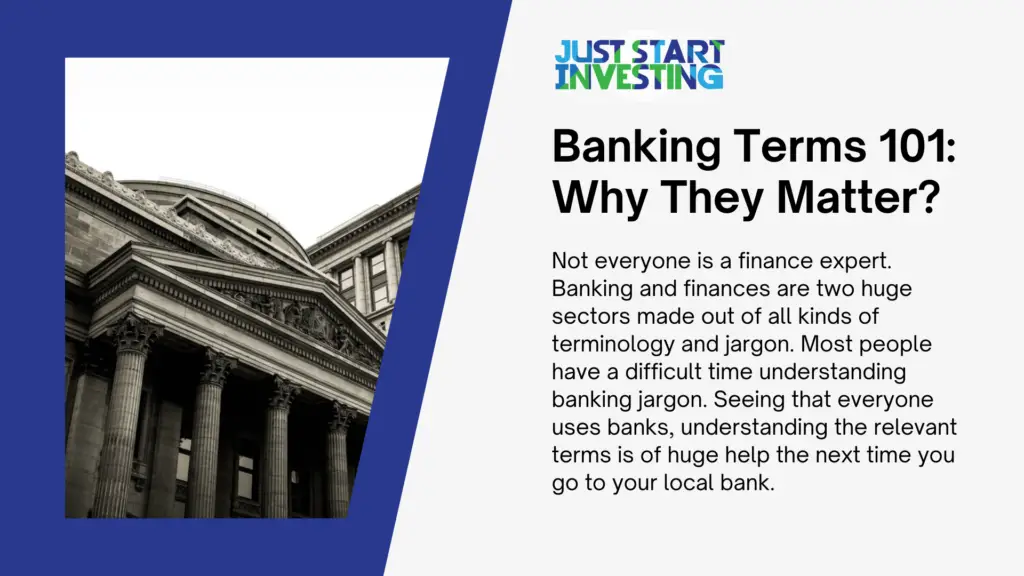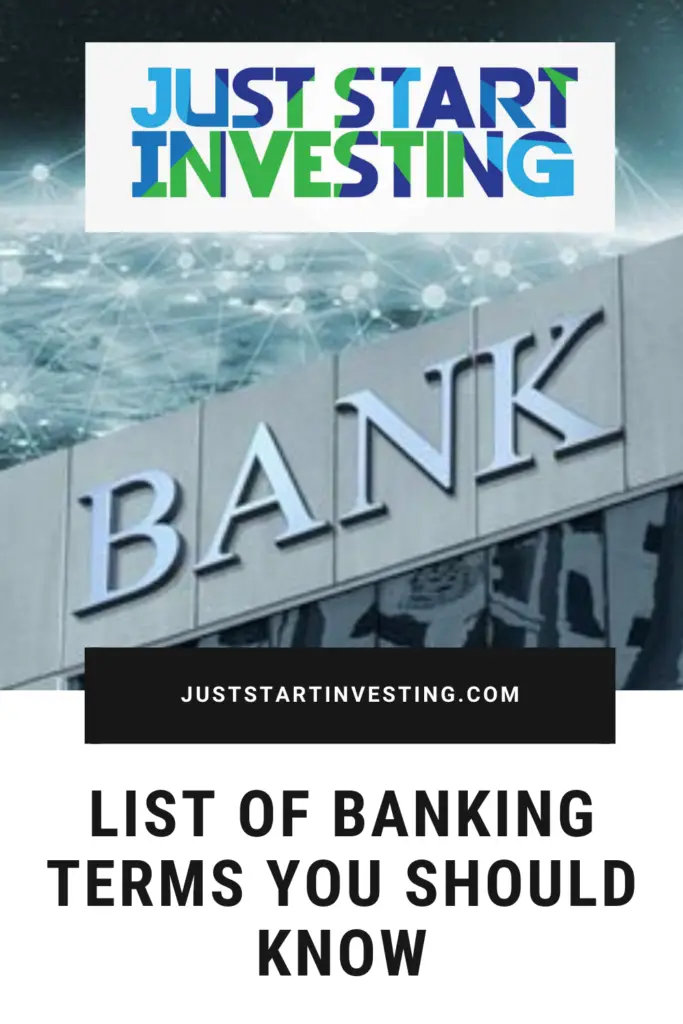To understand the world of banking and finance, you have to know the relevant terms. Tons of these banking terms will leave you scratching your head as to what they mean. But luckily, we’re here to tell you all about the most important ones.
Banking Terms 101: Why They Matter?
Not everyone is a finance expert. Banking and finances are two huge sectors made out of all kinds of terminology and jargon. Most people have a difficult time understanding banking jargon. Seeing that everyone uses banks, understanding the relevant terms is of huge help the next time you go to your local bank.
By understanding these terms, it’s easier to navigate the vast world of baking. So, here are the most relevant banking terms everyone should know.

Routing Number
A routing number is a very important number that identifies the financial institution that issues your check. This number is made out of nine digits, and every financial institution has one. Smaller banks usually have one routine number, while bigger banks have multiple numbers.
APR
APR is a banking jargon that stands for annual percentage rate. This term is used in both banking and finance, and every person that looks to invest should know what an APR is. As the name suggests, this term defines the annual percentage you gain when keeping your money in an account over a year. But an APR is also used when taking out a loan. In that context, an APR represents the amount you pay when taking out a loan.
Checking Account
Everyone should know what a checking account is. Banks and financial institutions allow customers to open a checking account. With this account, customers can deposit money and withdraw when paying for goods and services. In most cases, a checking account is where you receive your salary.
Debit Card
Everyone has a debit card. A debit card is issued by a bank or financial institution that cardholders can withdraw money from an ATM. If you have an account with a bank, a debit card is a means to access those accounts and pay for goods or services. Cardholders can use a debit card the same way as a credit card, but the main difference is that a debit card doesn’t come with credit.
A debit card is a great way to teach children about the importance of budgeting. If you want to know more about that, we have a guide on the subject right here.
Credit Card
Quite similar to what we just mentioned, a credit card allows customers to pay for goods and services. You can also withdraw money from an ATM. Since a credit card comes with credit, you can use the maximum allowed credit even if you don’t have the funds on your account. This gives cardholders greater flexibility, but spending too much credit can put you in debt. That’s why cardholders should be careful when using a credit card to make payments. Americans are used to owning more than one credit card, but not everyone knows how many credit cards they should own.
Owning more credit cards maximizes your credit utilization. But what that does is it accumulates credit debt.
Credit History
Everyone should know their credit history. If you have taken out a loan, then the credit bureau will look at how you repay that loan and rate you based on a couple of factors. The credit bureau looks at your credit history and gives you a number from 300 to 850.
This number is known as credit score, and everyone should pay attention to it. A credit score determines your creditworthiness. The higher the number, the more creditworthy you are. The more creditworthy you are, the higher the chances to take out a loan with favorable terms.
Bank Rate
Unless you work in banking, then there is no real reason you should know what a bank rate is. But in the grander scheme, a bank rate is a very important banking jargon everyone working in banking and finance should know. A bank rate is essentially the interest rate that a country’s central bank imposes on local banks when borrowing money. A higher bank rate is a sign of inflation, while a lower bank rate helps boost the local economy. Borrowers benefit more when the bank rate is lower.
Savings Account
Unlike a checking account, a savings account is meant to hold your money and accumulate interest. Depending on the bank or financial institution you open the account with, interest rates can vary. Online banks tend to offer much higher rates than national banks. Another thing that separates a savings account from a checking account is that you might not be able to withdraw whenever you want. Typically, you can only withdraw from a savings account a few times in a month.
The primary purpose of a savings account is to help you save.
Collateral
One of the scariest banking terms out there, collateral is a term that refers to an asset that the bank or other lender accepts as protection when giving the borrower a loan. Collateral can be anything from your house to other forms of assets such as a vehicle. When giving risky borrowers a loan, collateral is a means for the bank or lender to protect itself in the case of failed repayment.
Default
If a borrower of a loan fails to repay, they default. Since every borrower must repay the loan they take, the lender calculates the default risks before giving the borrower a loan. This is one of those banking terms that most people ignore when taking out a loan. If the borrower defaults, the lender can take the collateral in a bid to try and recoup losses.
Debt Ratio
A debt ratio is a banking jargon that determines the total debt to total assets ratio of a company’s leverage. The ratio is expressed in percentages or decimal numbers, and a higher ratio means a company is more at risk of defaulting. A lower debt ratio means a company’s debt is funded by equity, not assets.
Gross Income
From all the banking terms individuals should understand, gross income is one of the most important ones. A gross income is much different from a net income. Gross income displays the total income an individual receives before tax and other deductions. Net income, on the other hand, is the income after tax and deductions. The gross income will always be higher than the net income.
Conclusion
These twelve banking terms are some of the most relevant individuals will come across in the world of banking and finance. However, the number of total banking terms is much bigger than that. With hundreds of banking terms, understanding all of them isn’t necessary when navigating banking and finance.

Partner at Vega Capital Management - a private funds management company.
An experienced portfolio manager with 10+ years of proven and reputable track record in investment management and financial analysis. Currently, a partner at one of the fastest-growing private fund management companies in southeast Europe, Kiril has been tending to a loyal international base of client-investors and partners. When he is not crunching numbers and increasing his client’s wealth, he reminisces about his Michelin-star restaurant cheffing years and fondness of the culinary arts.

